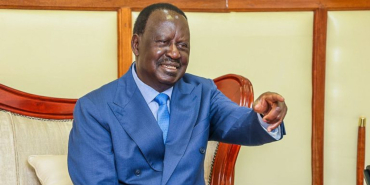Kenya Moves to Curb Gambling Addiction with Stricter Regulations

The Kenyan government is intensifying its efforts to combat the escalating gambling crisis through the Gambling Control Bill of 2023.
The legislative proposal aims to impose stricter regulations on betting companies and establish a framework for addressing gambling addiction, particularly among young people. At the heart of the proposed bill is a requirement that betting firms contribute a percentage of their earnings to a fund dedicated to rehabilitating individuals suffering from gambling addiction.
This initiative is a response to concerns that the financial burden of addressing gambling-related harm has disproportionately fallen on the government, while betting companies continue to amass substantial profits. Peter Mbugi, Director of the Betting Control and Licensing Board (BCLB), emphasises the need for betting companies to take responsibility for the consequences of their operations.
"In Kenya, helping those addicted to gambling has been left solely to the government, with betting companies claiming they've paid taxes. Why should the government use its resources to solve a problem it didn't create? Betting firms must be held responsible," Mbugi said during a parliamentary committee hearing.
He cites similar models in countries such as the United Kingdom, where betting companies contribute to addiction treatment and prevention programs.
The proposed legislation also seeks to empower the BCLB with advanced technology to enforce stricter controls on individual betting activities. One key provision is the implementation of a "cooling system" that would limit individuals to a single bet per day across all platforms. This measure aims to prevent excessive gambling and provide addicts with time to recover between betting sessions.
The specific duration of the cooling period would be determined by Parliament.
To effectively implement the cooling system, the BCLB is advocating for the acquisition of a centralised monitoring system capable of tracking betting activity across various platforms. Mbugi cautions that the use of such a system would require a legal framework authorising its access to the operations of betting companies. Additionally, the BCLB is seeking expanded powers, including the authority to impose fines on non-compliant operators to ensure adherence to the law.
While an earlier proposal to raise the legal betting age to 24 was ultimately rejected in favour of retaining it at 18, the BCLB is pushing for a comprehensive overhaul of the existing regulatory framework. Mbugi emphasises that the current Betting, Lotteries and Gaming Act, enacted in 1966, is woefully inadequate for regulating the modern, highly digitised gambling environment.
"Betting is no longer done in brick-and-mortar establishments. It's now online, on our phones. We need to shift from 1963 to 2023. That's how critical this new law is," Mbugi asserted.
He also highlights challenges such as limited enforcement funding and the rapid pace of technological advancements in the gambling industry, which hinder effective oversight. The BCLB's Director added, "We have no funds for enforcement. As we speak, we cannot carry out field operations to monitor betting firms. Our job is not just sitting in the office, we need to be on the ground."
Dan Wanyama, Chairperson of the Sports and Culture Committee, characterises the proposals as "critical and reasonable" and assured that they would be given serious consideration. "We are working to finalise the Bill as soon as possible. It could even be assented to by the President next week. So it's crucial we assess these proposals carefully," Wanyama stated, underscoring the urgency of the legislative effort.








Add new comment